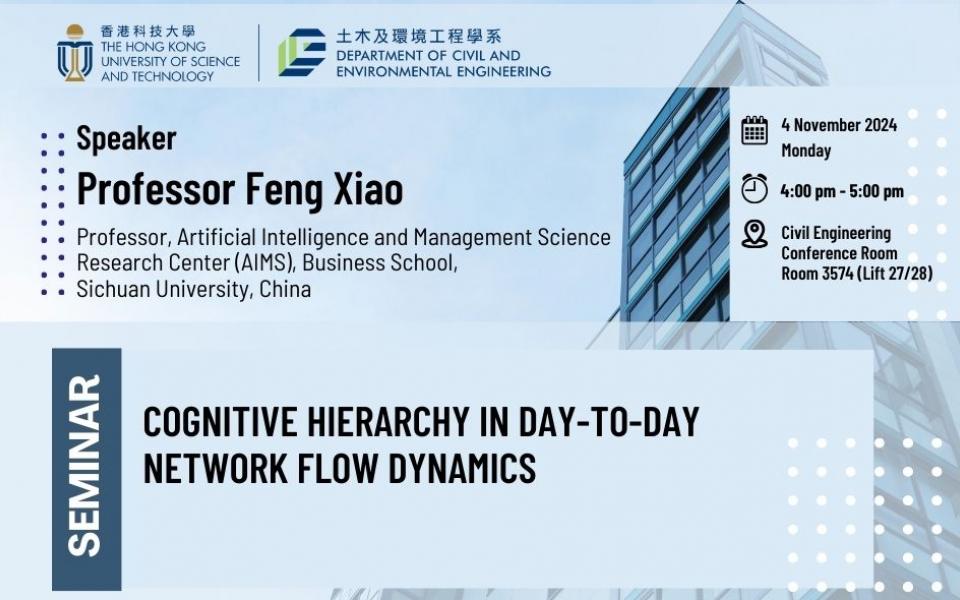Civil Engineering Departmental Seminar - Cognitive Hierarchy in Day-to-day Network Flow Dynamics
Supporting the below United Nations Sustainable Development Goals:支持以下聯合國可持續發展目標:支持以下联合国可持续发展目标:
Cognitive Hierarchy in Day-to-day Network Flow Dynamics
When making route decisions, travelers may engage in a certain degree of reasoning about what the others will do in the upcoming day, rendering yesterday’s shortest routes less attractive. This phenomenon was manifested in a recent virtual experiment that mimicked travelers’ repeated daily trip-making process. Unfortunately, prevailing day-to-day traffic dynamical models failed to faithfully reproduce the collected flow evolution data therein. To this end, we propose a day-to-day traffic behavior modeling framework based on the Cognitive Hierarchy theory, in which travelers with different levels of strategic-reasoning capabilities form their own beliefs about lower-step travelers’ capabilities when choosing their routes. Two widely studied day-to-day models, the Network Tatonnement Process dynamic and the Logit dynamic, are extended into the framework and studied as examples. Calibration of the virtual experiment is performed using the extended Network Tatonnement Process dynamic, which fits the experimental data reasonably well. We show that the two extended dynamics have multiple equilibria, one of which is the classical user equilibrium. While analyzing global stability is intractable due to the presence of multiple equilibria, local stabilities near equilibria are developed analytically and verified by numerical experiments. General insights on how key parameters affect the stability of user equilibria are unveiled.
Feng Xiao is currently a professor at Business School of Sichuan University, recipient of the National Science Fund for Distinguished Young Scholars, China. Dr. Xiao’s research interests include artificial intelligence algorithms and data mining, modeling and optimization of complex traffic systems, financial risk management and quantitative trading, healthcare data management, etc. He has published more than 70 papers in internationally renowned journals and conferences in the fields of management science and engineering, transportation technology and data mining, such as Transportation Science, Transportation Research Part A, B, C, D, E, IEEE TKDE, ISTTT, etc.
